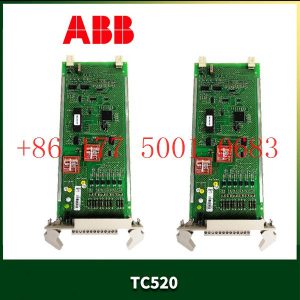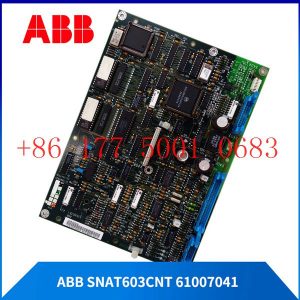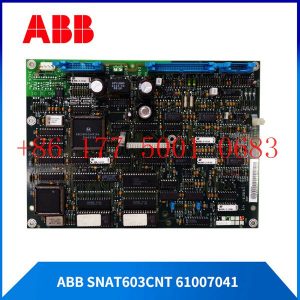Description
hardware flow control. It is an ideal choice in the field of industrial automation.
In the formula, a is the design acceleration/deceleration value: s is the current actual position value of the
elevator: V2 is the maximum speed of the elevator at this position.
Considering that the lifting system needs to enter the parking track at a low crawling speed when entering the
end of the stroke to avoid equipment damage caused by large mechanical impact, therefore, when there are still
1~5m away from the parking position, the lifting speed is limited to 0.5m/ below s.
Since the instantaneous speed before parking is very low, the position accuracy of the system”s parking can
be relatively improved, which is particularly important when the auxiliary shaft is lifted.
2.2 Design and implementation of security protection functions
Mines have particularly strict requirements on safety and reliability of hoist control systems [5]. While ensuring high
reliability of electrical control equipment, the control system also sets up multiple protections in key links where failures
may occur, and detects the actions and feedback signals of these protection devices in real time.
First of all, monitoring the operating status of the elevator is the top priority in the safety protection
function of the elevator control system. In the control system, the operating speed and position of the
motor are monitored at all times, and the current position and speed values are compared with the system”s
designed speed and position curve. Once it is found that the
actual operating speed of the hoist exceeds the designed speed value, immediately Issue an emergency
stop command and strictly ensure that the lifting speed is within the safe monitoring range during the entire
lifting process. At the same time, position detection switches are
arranged at several locations in the wellbore, and these position detection switches correspond to specific
position values and corresponding speed values. When the elevator passes these switches, if it is found through
encoder detection that the actual speed value and position deviate from the values corresponding to the position
detection switch, the control system will also judge that it is in a fault state
and immediately implement an emergency stop.
In order to determine whether the encoder connected to the main shaft of the elevator drum is normal,
two other encoders are installed on the elevator. In this way, the position and speed detection values
of the three encoders are always compared. Once it is found that the deviation between the detection
value of one encoder and the detection value of the other two encoders exceeds the allowable range,
the control system will immediately consider it to have entered a fault state and implement an emergency stop. Protective action.
3 Conclusion
The efficient and safe operation of main well equipment is an important guarantee for its function.
In the application of mine hoist, the 800xA system designed speed curve, self-correction, various
self-diagnosis and protection functions according to the specific process characteristics of the main
shaft mine hoist, which has achieved good results in practical applications.
Excitation system ABB module ITCTU05
Excitation system ABB module ITCTU04
Excitation system ABB module ITCTU03/11
Excitation system ABB module ITCTU03
Excitation system ABB module IT94-3 HESG440310R2 HESG112699/B
Excitation system ABB module IPSYS01
Excitation system ABB module IPSYS01
Excitation system ABB module IPSYS01
Excitation system ABB module IPS21-35AD
Excitation system ABB module IPMON01
Excitation system ABB module IPMON01
Excitation system ABB module IPFLD48
Excitation system ABB module IPFLD24
Excitation system ABB module IPFLD125
Excitation system ABB module IPFLD01
Excitation system ABB module IPFCH01
Excitation system ABB module IPFAN14
Excitation system ABB module IPFAN13
Excitation system ABB module IPFAN12
Excitation system ABB module IPFAN11
Excitation system ABB module IPESW11
Excitation system ABB module IPECB13
Excitation system ABB module IPECB11
Excitation system ABB module IPCHS02
Excitation system ABB module IPCHS01
Excitation system ABB module IPBLK01
Excitation system ABB module IPBLC01
Excitation system ABB module INTKM01
Excitation system ABB module INSPM01
Excitation system ABB module INSOE01
Excitation system ABB module INSIM01
Excitation system ABB module INSEM11
Excitation system ABB module INSEM01
Excitation system ABB module INSCS01
Excitation system ABB module INPTM01
Excitation system ABB module INPPT01
Excitation system ABB module INPCT01
Excitation system ABB module INPCI02
Excitation system ABB module INPCI01
Excitation system ABB module INPBS01
Excitation system ABB module INNTP01
Excitation system ABB module INNPM22
Excitation system ABB module INNPM22
Excitation system ABB module INNPM22
Excitation system ABB module INNPM22
Excitation system ABB module INNPM12
Excitation system ABB module INNPM12
Excitation system ABB module INNPM12
Excitation system ABB module INNPM11
Excitation system ABB module INNPM01
Excitation system ABB module INNIS21
Excitation system ABB module INNIS21
Excitation system ABB module INNIS21
Excitation system ABB module INNIS11
Excitation system ABB module INNIS11
Excitation system ABB module INNIS11
Excitation system ABB module INNIS01
Excitation system ABB module INNIS01
Excitation system ABB module INNIS01
Excitation system ABB module INLIM03
Excitation system ABB module INLIM02
Excitation system ABB module INIT03
Excitation system ABB module INIT03
Excitation system ABB module INIPT02
Excitation system ABB module INIPT01
Excitation system ABB module INIIT14









Reviews
There are no reviews yet.